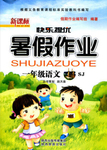题目内容
【题目】Two brothers decided to dig a deep hole behind their house. As they were working, a couple of older boys stopped by to watch.
“What are you doing?” asked one of the visitors.
“We plan to dig a hole all the way through the earth!” one of the brothers said excitedly.
The older boys began to laugh, telling the younger ones that digging a hole all the way through the earth was impossible. After a long silence, one of the diggers picked up a jar full of spiders, worms and all kinds of other insects. He removed the lid and showed the wonderful contents to the scoffing(嘲笑)visitors. Then he said quietly and confidently, “Even if we don’t dig all the way through the earth, look what we found along the way!”
Their goal was far too ambitious(有野心的), but it did cause them to dig. And that is what a goal is for — to cause us to move in the direction we have chosen; in other words, to set us to digging!
But not every goal will be fully achieved. Not every job will end successfully. Not every relationship will endure(长久持续). Not every dream will be realized. But when you fall short of your aim, perhaps you can say, “Yes, but look at what I found along the way! Look at the wonderful things which have come into my life because I tried to do something!”
It is in the digging that life is lived. And I believe it is joy in the journey, in the end, that truly matters.
【1】Which of the following is NOT the reason why the older boys laughed at the two brothers?
A. The two brothers only dug out a lot of insects
B. The two brothers lacked knowledge of the earth.
C. The two brothers were foolish.
D. The two brothers had a far too ambitious goal.
【2】What does the underlined part “when you fall short of your aim” probably mean?
A. When you are shorter than you expected
B. When you have less than the amount than you wanted
C. When you fail to obtain(得到)what you expected
D. When you miss the target you are aiming at
【3】The passage is written to _____.
A. tell readers a story
B. teach readers how to set a goal
C. praise the two brothers
D. teach readers a lesson
【4】Which would be the best title for the passage?
A. Dig a Hole Through the Earth
B. Joy in the Journey
C. Realize Your Goal
D. Don’t Laugh at Others
【答案】
【1】A
【2】C
【3】D
【4】B
【解析】
试题分析:本文用一个故事,来讲述了一个道理,人们应该有目标,并为实现该目标而付出自己的劳动,尽管这个目标有可能实现不了,而在做的过程中却得到了自己的快乐是非常重要的。
21.【1】A细节理解题。根据文章中的“We plan to dig a hole all the way through the earth!” one of the brothers said excitedly. 我们计划挖一个穿过地球的洞。Their goal was far too ambitious(有野心的), but it did cause them to dig.他们的目标是非常的有野心的,但它确实使他们去挖了。从这里可知排除B、C、D选项,故选A。A项意思是:他们挖出了很多虫子。这是正常的,因此这不是被嘲笑的理由。
【2】C词义猜测题。根据倒数第二段中的Not every dream will be realized. But when you fall short of your aim, perhaps you can say,“不是每个梦都能实现,但是当目标实现不了时,或许你可能说”,因此可知划线部分的意思是:当你实现不了你的目标时,故选C。
【3】D写作意图题。根据when you fall short of your aim, perhaps you can say, “Yes, but look at what I found along the way! Look at the wonderful things which have come into my life because I tried to do something!” 尽管这个目标有可能实现不了,而在做的过程中却得到了自己的快乐是非常重要的。给读者一个启迪。故选D。
【4】B标题归纳题。根据I believe it is the joy in the journey, in the end, that truly matters.文章的
最后一句是中心句,故选B。

 新课标快乐提优暑假作业陕西旅游出版社系列答案
新课标快乐提优暑假作业陕西旅游出版社系列答案